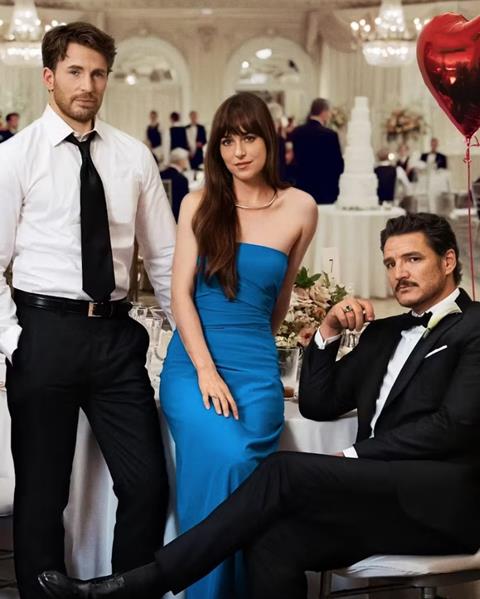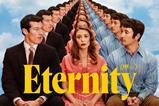Celine Song’s latest film follows a successful New York matchmaker as she pairs people up by reducing them to numbers such as age, height and salary. But God doesn’t do this, says Giles Gough, and neither should Christians looking for love

At first glance, The Materialists looks like the quintessential rom-com. Dakota Johnson has the terrible problem of choosing between impossibly rich Pedro Pascal and excessively earnest Chris Evans. How ever will she choose?
But on closer inspection, this film is also an interrogation of the modern dating scene. Johnson’s character Lucy works as a high-end matchmaker. She seeks out potential partners for those wealthy enough to afford a luxury service which charges its clients thousands of dollars. As they are paying a premium, they believe they can ask for exactly what they want in a mate, being painfully specific when it comes to factors like age, BMI, salary and, crucially, height.
Every person has an intrinsic value to God that is ultimately unquantifiable
With marriage being the ultimate marker of success for a matchmaker, the film begins with Lucy attending the ninth wedding she is responsible for. There, she finds herself being wooed by Harry (played by the effortlessly cool Pedro Pascal) an eligible bachelor with a personal fortune running into the multi-millions.
But, as fate may have it, she also runs into her ex at the same wedding. John (Chris Evans) is a hard-up actor, making ends meet working as a waiter for a catering service. As the story unfolds, Lucy finds herself torn between the man who ticks all the boxes and the man she can’t quite seem to forget.
While the film has all the trappings of a modern day rom-com, it is also director Celine Song’s attempt to discuss the way modern dating has commodified people, and the resentment that creates. “I am not merchandise” one of Lucy’s clients tells her frustratedly. Yes, it’s exaggerated, set in New York – the city that invented cynicism – with a supporting cast of clients who are in effect, bratty children. But many of the principles for the rest of the dating world are the same.
Dating in the Christian world
“Love is the last religion” the film tells us, and when you add the element of faith to dating, it complicates it exponentially.
The Christian dating pool is much smaller. Studies have shown that churches tend to have more women in them than men, which not only creates a scarcity for single women, but an insecurity for single men. After all, if you know the numbers are in your favour, and you’re still single, you might start to ask if there’s something wrong with you.
Turning to dating apps brings its own set of challenges. As well as the factors mentioned in the secular world, there is a danger in subconsciously reducing someone’s relationship with Jesus to a set of numbers too. We use our own personal shibboleth to determine the authenticity of another person’s faith: How long have they been a Christian? How often do they go to church? How regularly do they read their Bible and pray?
Whether people are willing to admit it or not, these numbers may well impact their decision to go on a second date or not. After all, saying you’re a Christian and being a Christian are often two different things.
Love without measure
The Materialists also highlights the gap between the cut-throat nature of dating and the selflessness of love. “Dating takes effort…Love is easy” Lucy tells Harry early on. Viewers familiar with the genre might have an idea how the choice between a “high value male” (a term most commonly used by incels) and a smouldering working man is going to go. But trying to guess the ending would be missing the point.
Oscar-nominated director Song uses The Materialists as a chance to discuss the nature of love, marriage and dating. Not only is the film inspired by her time working as a matchmaker in New York, but her experience as a playwright is also on display.
We use our own personal shibboleth to try and determine the authenticity of another person’s faith
The film is essentially a series of conversations between characters who are effortlessly articulate and emotionally literate. It doesn’t completely hang together, as the film lacks a bit of narrative drive, and there’s a plot thread about the risks women have to take with men who turn out to be predatory, which feels like it never really has the time or space to breathe.
For Christians, it’s a reminder of how God sees us by showing us the opposite. Every person has an intrinsic value to God that is ultimately unquantifiable. This is neatly summed up by the director, who recently told Simon Mayo and film critic Mark Kermode: “If [you ask] the person who really loves you: ‘Why do you love me?’ they’re not going to see a single number”.
In UK cinemas now






































No comments yet